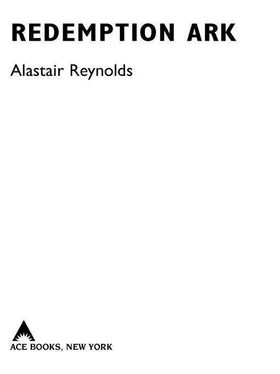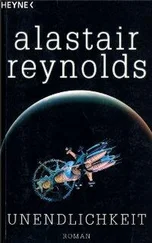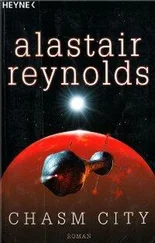Reynolds, Alastair - Redemption Ark
Здесь есть возможность читать онлайн «Reynolds, Alastair - Redemption Ark» весь текст электронной книги совершенно бесплатно (целиком полную версию без сокращений). В некоторых случаях можно слушать аудио, скачать через торрент в формате fb2 и присутствует краткое содержание. Жанр: Старинная литература, на английском языке. Описание произведения, (предисловие) а так же отзывы посетителей доступны на портале библиотеки ЛибКат.
- Название:Redemption Ark
- Автор:
- Жанр:
- Год:неизвестен
- ISBN:нет данных
- Рейтинг книги:3 / 5. Голосов: 1
-
Избранное:Добавить в избранное
- Отзывы:
-
Ваша оценка:
- 60
- 1
- 2
- 3
- 4
- 5
Redemption Ark: краткое содержание, описание и аннотация
Предлагаем к чтению аннотацию, описание, краткое содержание или предисловие (зависит от того, что написал сам автор книги «Redemption Ark»). Если вы не нашли необходимую информацию о книге — напишите в комментариях, мы постараемся отыскать её.
Redemption Ark — читать онлайн бесплатно полную книгу (весь текст) целиком
Ниже представлен текст книги, разбитый по страницам. Система сохранения места последней прочитанной страницы, позволяет с удобством читать онлайн бесплатно книгу «Redemption Ark», без необходимости каждый раз заново искать на чём Вы остановились. Поставьте закладку, и сможете в любой момент перейти на страницу, на которой закончили чтение.
Интервал:
Закладка:
The great work would not soon be over.
But that was only one future. There was another, Felka said. It was the future in which intelligence slipped through the net here and now, the future in which the Inhibitors lost their grip on the galaxy.
In that future, she said, the time of great flourishing was imminent in cosmic terms; it would happen within the next few million years. In a heartbeat, the galaxy would run amok with life, becoming a teeming, packed oasis of sentience. It would be a time of wonder and miracles.
And yet it was doomed.
Organic intelligence, Felka said, could not achieve the necessary organisation to steer itself through the collision. Species co-operation was just not possible on that scale. Short of xenocide, one species wiping out all the others, the galactic cultures would never become sufficiently united to engage in such a massive and protracted programme as the collision-avoidance operation. It was not that they would fail to see that something had to be done, but that every species would have its own strategy, its own preferred solution to the problem. There would be disputes over policy as violent as the Dawn War.
Too many hands on the cosmic wheel, Felka said.
The collision would happen, and the results—from the collison and the wars that would accompany it—would be utterly catastrophic. Life in the Milky Way would not end immediately; a few flickering flames of sentience would struggle on for another couple of billion years, but because of the measures they had taken to survive in the first place, they would be little more than machines themselves. Nothing resembling the pre-collision societies would ever arise again.
She fumbled her suit-radio on. Khouri’s voice was there immediately. “Ilia . . . ? Ilia . . . ? Can you—”
“I can hear you, Khouri. Is something the matter?”
“Nothing’s the matter, Ilia. It’s just that you seem to have done whatever it was you set out to do. The cache weapon landed a direct hit on Zodiacal Light. ”
She closed her eyes, tasting the moment, wondering why it felt far less like victory than she had imagined it would. “A direct hit?”
“Yes.”
“It can’t have been. I didn’t see the flash as the Conjoiner drives went up.”
“I said it was a direct hit. I didn’t say it was a fatal hit.”
By then Volyova had managed to call up a long-range grab of Zodiacal Light on the shuttle’s console. She piped it through to her helmet faceplate, studying the damage with awed fascination. The beam had sliced through the hull of Clavain’s ship like a knife through bread, snipping off perhaps a third of its length. The needle-nosed prow, glittering with carved facets of diamond-threaded ice, was buckling away from the rest of the hull in ghastly slow motion, like some toppling spire. The wound that the beam had excavated was still shining a livid shade of red, and there were explosions on either side of the severed hull. It was the most heart-wrenchingly beautiful thing she had seen in some time. It was just a shame she was not seeing it with her own eyes.
That was when the shuttle jarred to one side. Volyova thumped against one wall, for she had not had time to buckle herself back into the control seat. What had happened? Had the weapon adjusted its direction of aim, shoving her shuttle in the process? She steadied herself and directed her goggles to the window, but the weapon was in the same orientation as it had been when it had stopped firing. Again the shuttle jarred to one side, and this time she felt, through the tactile-transmitting fabric of her gloves, the shrill scrape of metal against metal. It was exactly as if another ship were brushing against her own.
She arrived at this conclusion only a moment before the first figure came through the still open airlock door. She cursed herself for not closing the lock behind her, but she had been lulled into a false sense of security by the fact that she was wearing a suit. She should have been thinking about intruders rather than her own life-support needs. It was exactly the kind of mistake she would never have made had she been well, but she supposed she could allow herself one or two errors this late in the game. She had, after all, delivered something of a winning move against Clavain’s ship. The broken hull was drifting away now, trailing intricate strands of mechanical gore.
“Triumvir?” The figure was speaking, his voice buzzing in her helmet. She studied the intruder’s armour, noting baroque ornamentation and dazzling juxtapositions of luminous paint and mirrored surface.
“You have that pleasure,” she said.
The figure had a wide-muzzled weapon pointed at her. Behind, two more similarly armoured specimens had squeezed into the cabin. The first tugged up a black flash visor; through the thick dark glass of his helmet she caught the not-quite-human facial anatomy of a hyperpig.
“My name is Scorpio,” the pig informed her. “I’m here to accept your surrender, Triumvir.”
She clucked in surprise. “My surrender?”
“Yes, Triumvir.”
“Have you looked out of the window lately, Scorpio? I really think you ought to.”
There was a moment while her intruders conferred amongst themselves. She sensed to the second the moment when they became aware of what had just happened. There was the minutest lowering of the gun muzzle, a flicker of hesitation in Scorpio’s eyes.
“You’re still our prisoner,” he said, but with a good deal less conviction than before.
Volyova smiled indulgently. “Well, that’s very interesting. Where do you think we should complete the formalities? Your ship or mine?”
[I don’t know, Clavain.]
It could be a lie. It could be propaganda that the Wolf showed you, self-justifying rhetoric. Maybe there is no higher cause. Maybe all they’re really doing is wiping out intelligence for no other reason than that’s what they do. And even if what they showed you is true, that doesn’t begin to make it right. The cause might be just, Felka, but history’s littered with atrocities committed in the name of righteousness. Trust me on this. You can’t excuse the murder of billions of sentient individuals because of some remote utopian dream, no matter what the alternative.
[But you know precisely what the alternative is, Clavain. Absolute extinction.]
Yes. Or so they say. But what if it isn’t that simple? If what they told you is true, then the entire future history of the galaxy has been biased by the presence of the wolves. We’ll never know what would have happened if the wolves hadn’t emerged to steer life through the crisis. The experiment has changed. And there’s a new factor now: the wolves’ own weakness, the fact that they’re slowly failing. Maybe they were never meant to be this brutal, Felka—have you considered that? That they might once have been more like shepherds and less like poachers? Perhaps that was the first failure, so long ago that no one remembers it. The wolves kept following the rules they had been instructed to enforce, but with less and less wisdom; less and less mercy. What started as gentle containment became xenocide. What started as authority became tyranny, self-perpetuating and self-reinforcing. Consider it, Felka. There might be a higher cause to what they’re doing, but it doesn’t have to be right.
[I only know what it showed me. It’s not my job to choose, Clavain. Not my job to show you what you should do. I just thought you ought to be told.]
I know. I’m not blaming you for it.
[What are you going to do, Clavain?]
He thought of the cruel balance of things: equating vistas of cosmic strife—millennia-long battles thrumming across the face of the galaxy—against infinitely grander vistas of cosmic silence. He thought of worlds and moons spinning, their days uncounted, their seasons unremembered. He thought of stars living and dying in the absence of sentient observers, flaring into mindless darknesss until the end of time itself, not a single conscious thought to disturb the icy calm between here and eternity. Machines might still stalk those cosmic steppes, and they might in some sense continue to process and interpret data, but there would be no recognition, no love, no hate, no loss, no pain, only analysis, until the last flicker of power faded from the last circuit, leaving a final stalled algorithm half-executed.
Читать дальшеИнтервал:
Закладка:
Похожие книги на «Redemption Ark»
Представляем Вашему вниманию похожие книги на «Redemption Ark» списком для выбора. Мы отобрали схожую по названию и смыслу литературу в надежде предоставить читателям больше вариантов отыскать новые, интересные, ещё непрочитанные произведения.
Обсуждение, отзывы о книге «Redemption Ark» и просто собственные мнения читателей. Оставьте ваши комментарии, напишите, что Вы думаете о произведении, его смысле или главных героях. Укажите что конкретно понравилось, а что нет, и почему Вы так считаете.












